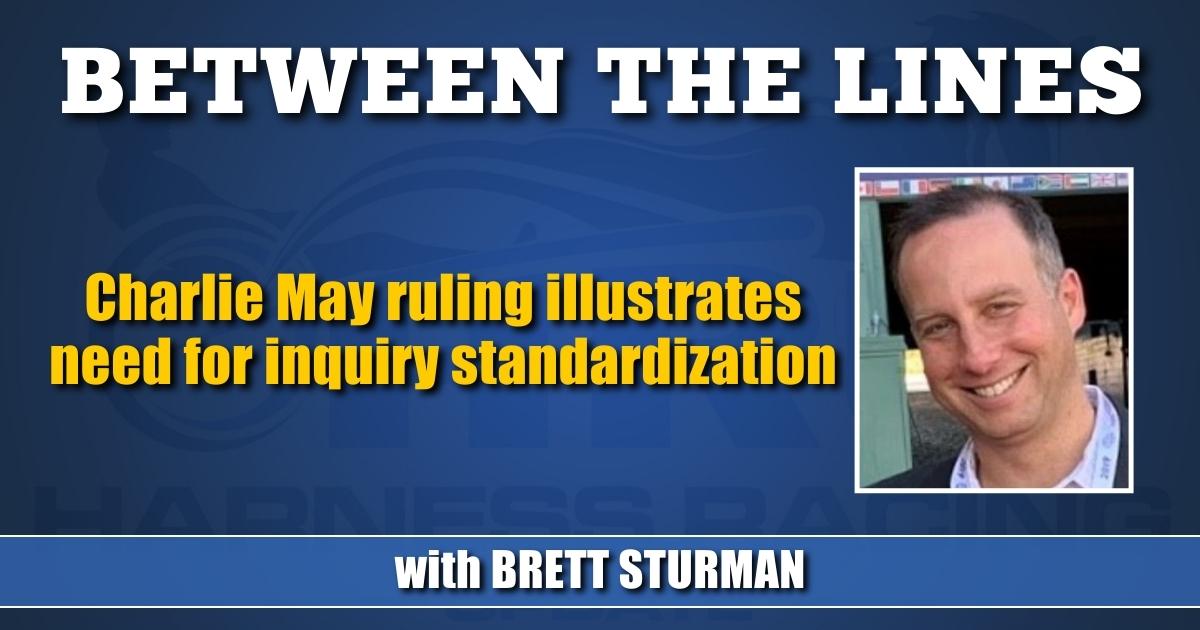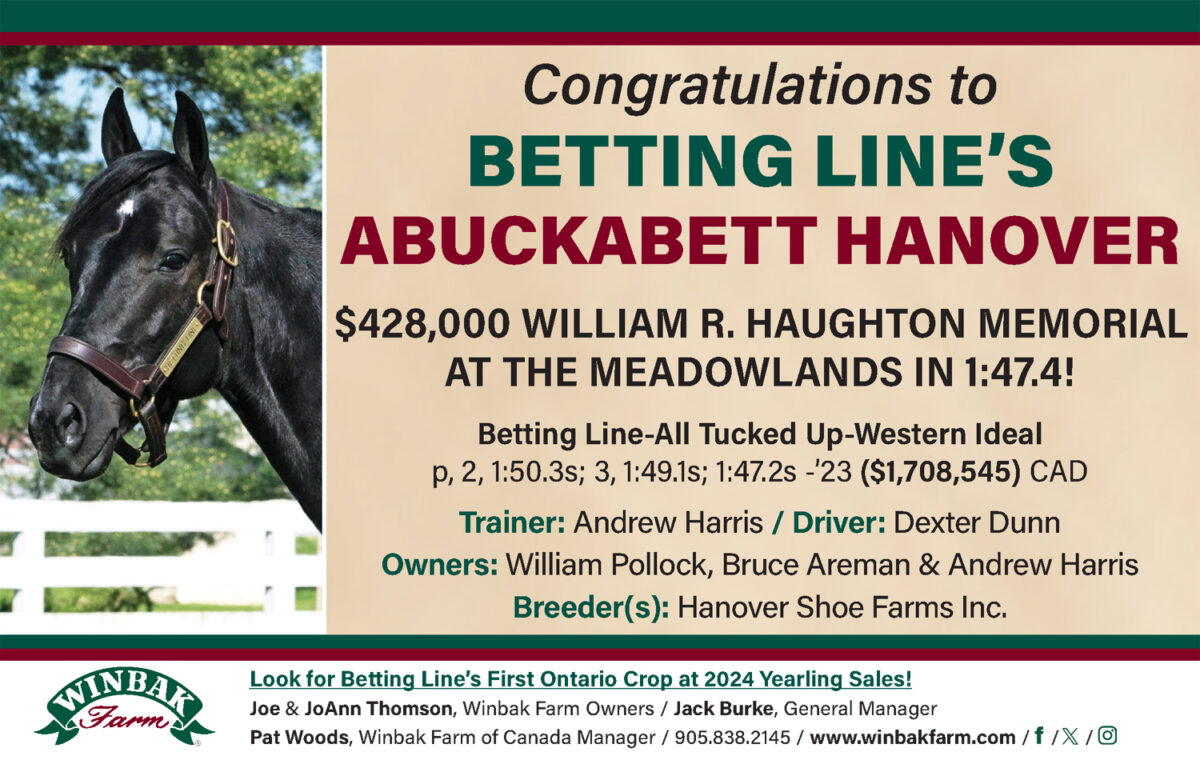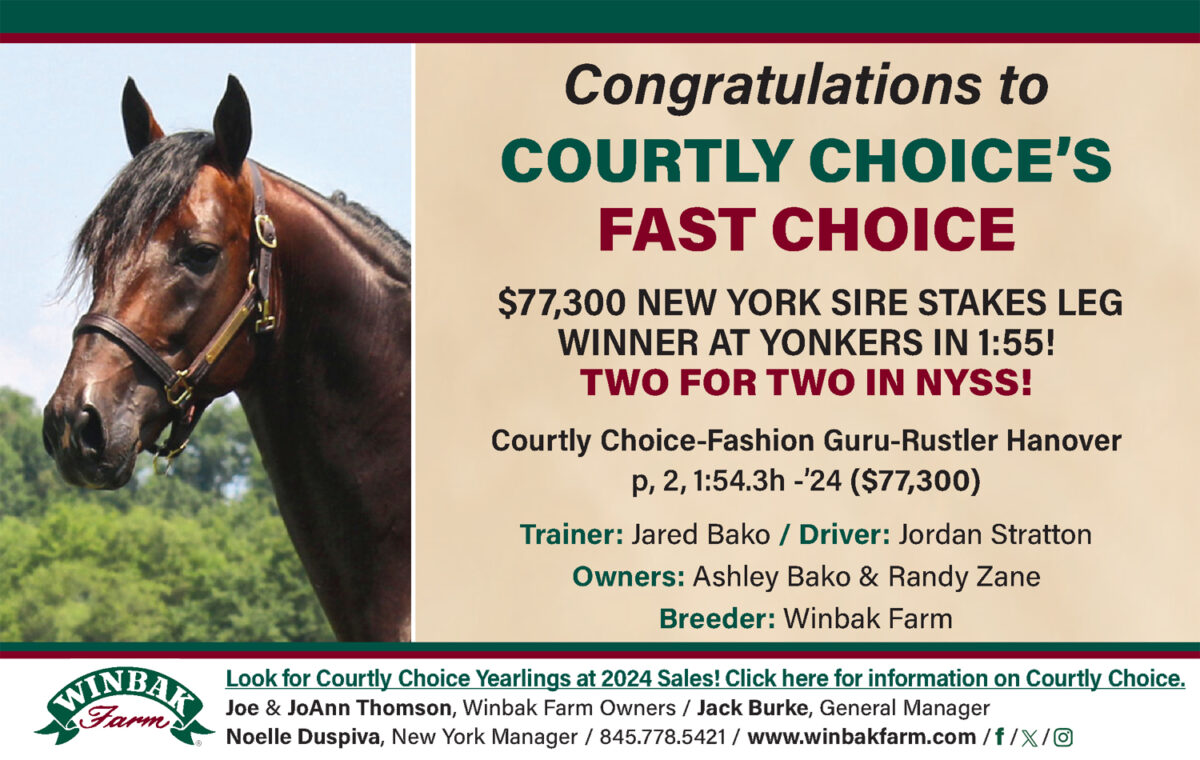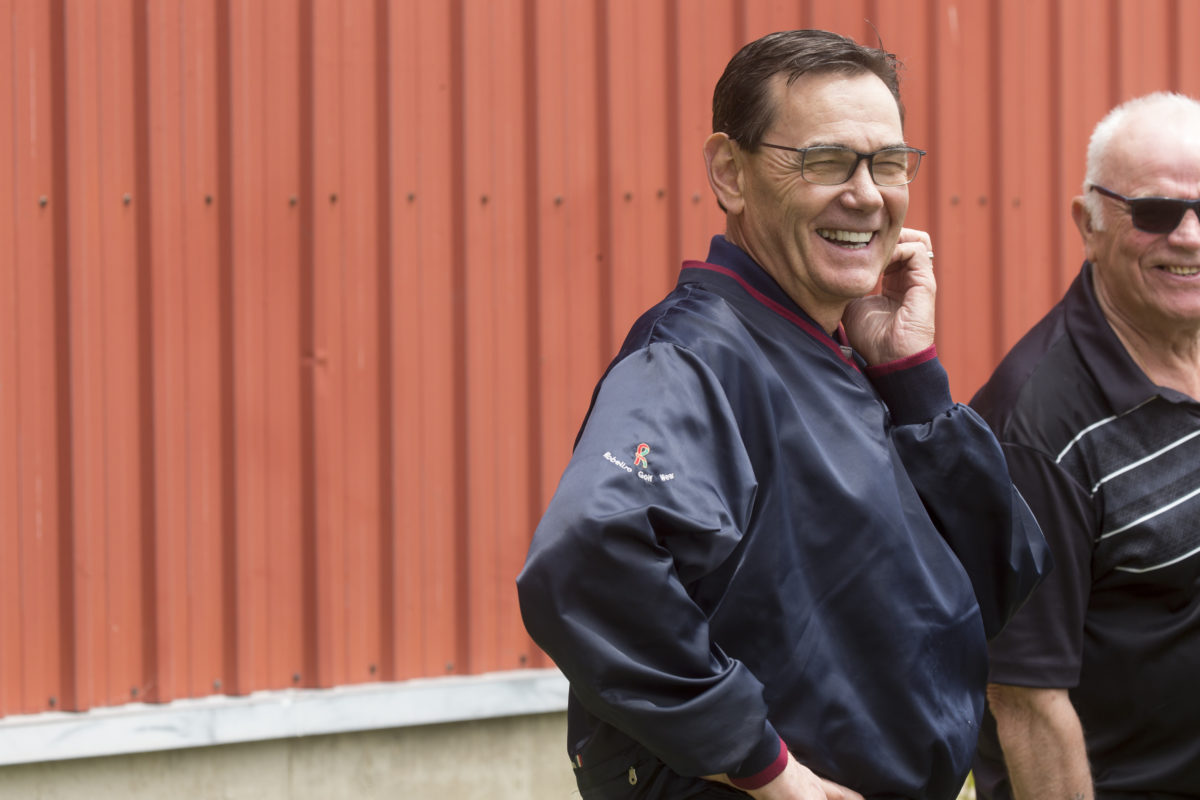

Charlie May ruling illustrates need for inquiry standardization
Hambletonian Society president John Campbell weighs in.
by Brett Sturman
In his decision last Friday to reverse the New Jersey Racing Commission’s (NJRC) disqualification of Charlie May from the 2021 Meadowlands Pace, Judge Andrew Baron took exception to how the inquiry immediately following that race was conducted. Particularly, with regards to input from race participants not being solicited.
As part of his ruling, Baron states, in reference to Petitioner/Don Tiger’s expert witness Art Gray, “Of interest towards the end of Mr. Gray’s testimony was the fact that at a meeting of regional race officials that took place four months after Charlie May was disqualified, the officials in attendance agreed and adopted something now referred to as the “Charlie May rule,” which calls on race officials in their due diligence when the outcome of a race is called into question when interference is alleged, to interview as many drivers and others involved before rendering a decision that may result in disqualification of a winning horse.”
Regardless of if the NJRC elects to adopt or reject Baron’s recommended decision, the “Charlie May rule” as it was referred to in the ruling is a much-needed step in the right direction. As is standard operating procedure within thoroughbred racing, all involved riders (drivers, in this case), should be required to communicate with judges during an inquiry and provide their on-track perspective for whatever events are subject on an inquiry. It’s hard to believe that hasn’t already been the case.
Perhaps one reason why it isn’t part of standard procedure depending on the jurisdiction, is because there is a sense among some that judges simply don’t need the driver input. That judges are placed in their positions to determine specifically these matters on their own and that video evidence alone is sufficient.
From his own experience, Hall of Fame driver and Hambletonian Society president John Campbell believes that even with driver input, judges’ decisions almost always come down to the video.
“This would be in the late 1980s or early 1990s, and I had a disagreement with a judge,” Campbell said. “He wasn’t happy with what I had told him over an inquiry, so I went in the next morning and spoke to him. I said, ‘You know what, don’t call me anymore. When we have to go by what is on the video, then it doesn’t matter what I say. It’s either on the video or it’s not. If it’s appealed, all the decisions are going to come down to what’s on that video. You have the advantage of looking at it from all the angles. You just make the call from what you see on the video, and I’ll be fine with it.’”
Interestingly, Campbell confirmed that he was not contacted by the judges during another highly controversial disqualification; the take-down of him and Odds On Equuleus in the 2012 Bluegrass Stakes at the Red Mile for what judges said was abruptly slowing the pace. Though at least one driver was interviewed, Campbell — who was found to cause confusion among trailing horses — was not.
Campbell concedes that sometimes there can be a misconception on video as to what actually occurred in a race, but he reiterates that ultimately decisions from judges come down to what’s on video. And while he can’t say if drivers should be part of a standard inquiry process since he’s never been a judge, Campbell does strongly believe in a consistent process.
“If they’re going to call someone, they should do it all the time, or never,” Campbell said. “They should be consistent. And the overall protocol should come from the commissions. The judges work for the commission, so they should be instructing them on how they want their inquiries to be conducted.”
Even if the judges had talked to Charlie May’s driver, Brett Miller, would his side of the story have been enough to warrant not disqualifying the horse in the Meadowlands Pace? From Campbell’s experience, it likely would not have changed the outcome. But the basis for Tiger’s successful appeal was that he wasn’t afforded due process because of the lack of due diligence (i.e., not talking to race participants) more-so than the events that transpired on the track. Though, it is noteworthy that in this case, the Administrative Law Judge concluded differently than the Racing Commission’s judges as to what the video replay showed.
For now, the “Charlie May rule” refers to processes I believe that’s being formulated starting with the state of New Jersey, but it’s something that should expand to all other jurisdictions that don’t currently have input from race participants as part of their inquiry decision making process. Even if judges feel they don’t necessarily want or even need the input, accumulating more information only leads to further transparency.
As part of ALJ Baron’s ruling, it was documented that the outcome of races should not only be safeguarded for its contestants, but for the public at large too. In establishing a precedent where further due diligence must be performed, the current win for Charlie May could turn out to be a win for all of us.
















